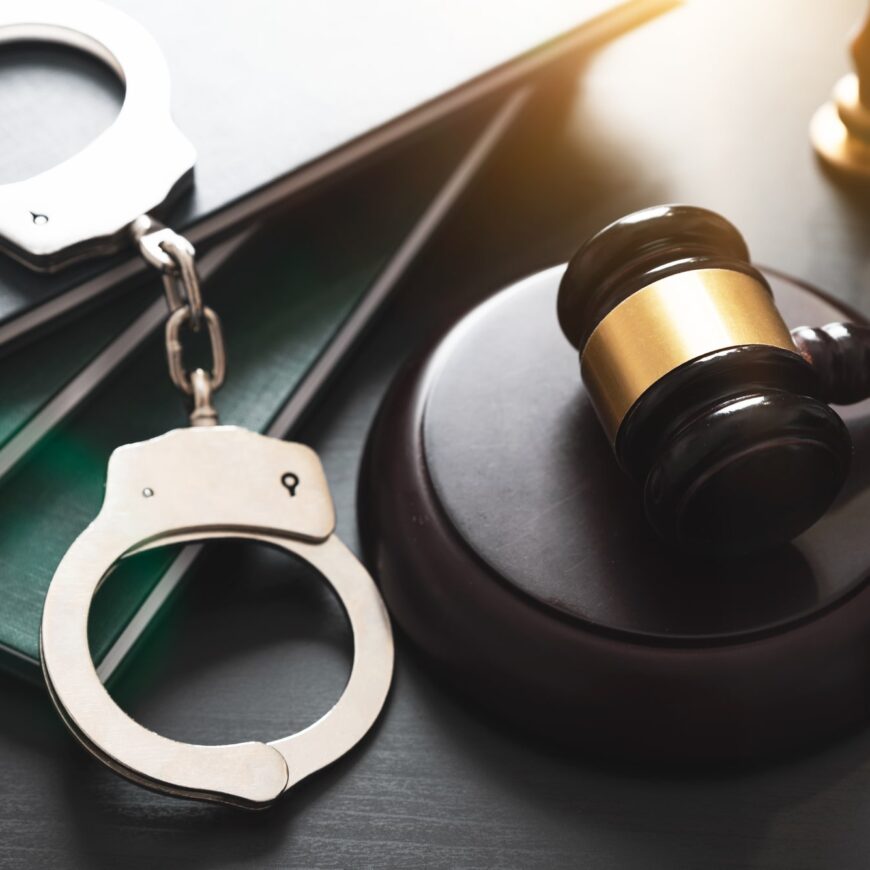Criminal Defense Lawyer
There are, of course, multiple stressors in a murder case. Perhaps the first that comes to mind is the prospect of standing with one’s client before the court, preparing to hear the jury verdict in a first degree murder case – or, in circumstances where the court is imposing sentence, standing before the court after a verdict, but waiting to hear the court pronounce sentence – Life in prison, or execution. Fortunately, I never had to face the latter; but did have the stress of standing before the court to take a jury’s verdict. This is a stress unknown to most practitioners.
In the initial phase of a trial, whether murder or otherwise, the first stress to be faced is that of trying to gain sufficient confidence of the accused to insure that he, or she, is telling all that happened, truthfully and fully, unvarnished by excuse or “hiding the ball.” One has to carefully and thoroughly examine and cross-examine the client to be comfortable that the client is telling it all like it is – not like the client wants it to be. My experience in defending persons who are allegedly part of organized crime is that usually these people know the wisdom of laying it all out, thoroughly and fully, to his or her attorney so that a proper defense might be accomplished. Other persons, not professional criminals, are justifiably reluctant to come forth with the whole truth. This is where careful examination and insight must be employed to gain the confidence of the client.
Another issue, not necessarily in chronological order, is trying to determine if a change of venue is warranted – and the grounds are available. Such a motion is only required where there can be shown the accused is not likely to receive a fair trial in the community where he or she has been charged. This includes undue publicity, especially in a small community, where people are likely to be swayed by the press, or other publicity – it must be severe enough that it will likely affect the entire jury pool. In capital cases, a jury pool that is predisposed for or against the death penalty must be considered. This means a painstaking effort must be made to determine if the case actually warrants a change, and to determine, for the defense, which way the pool may be swayed. Sometimes a judge may be shown to be prejudiced against the accused (good luck presenting that one to the court). In some cases, the convenience of witnesses may be considered. In the final analysis, an accused is entitled to a fair trial by an impartial jury, but that doesn’t mean the accused is entitled to be tried in the community of his or her choice. The defense has a difficult task of showing the reasonable likelihood of prejudice.
In a capital case, especially where the evidence will likely point to guilt, a defense attorney will struggle to determine if there possibly exists the defense of “insanity.” This is put in quotes because there are multiple different definitions of what constitutes insanity. Most States follow the so-called “McNaughton Rule,” or a variation thereof. This is a rule that developed in England, and involves a defendant who cannot distinguish right from wrong, or otherwise was unable to understand what he or she did because of a disease of the mind. Over time, most states have modified the rule to include a diminished capacity or an inability to control an impulse because of a mental disorder. (This may lead to the question of whether the impulse goes to insanity or is a ground for alleging manslaughter, or second-degree murder). The burden of proof varies, and adds to the stress of where the case is taking place. For instance, in Colorado where I practiced before moving to Texas, that state has adopted the McNaughton Rule, with an irresistible impulse test. And the burden of proof is on the prosecution to establish sanity. In Texas, the same Rule applies – but the burden is on the defense. This brings to mind another important stressful element. What is the method used in execution. I once had a case in Idaho, where my client and his cohorts got drugged up and broke into a hospital pharmacy, killing a police officer in the process. He and the others were charged with murder and robbery. At the time, Idaho’s method of capital punishment was death by hanging. We promptly negotiated for a robbery plea. Subsequently, Idaho abolished hanging and provided for a firing squad. My client would still have opted for a robbery plea. Some states, like Texas, which has had more than ample experience in executions, use lethal injections. And some states have experienced horror in that method of execution. With that in mind, if there’s any way to plead insanity, regardless of who has the burden, it’s a stress and needs to be considered.
A further stress to be addressed is wondering if the prosecution has provided all of the “Brady” materials required to be provided under the Supreme Court test of Brady v. Maryland, 373 U.S. 83 (1963). There, the Supreme Court ruled that the prosecution must provide to the defense any and all exculpatory information available – information that may assist the defendant in establishing a defense, or impeaching the credibility of a witness, or in reducing a sentence. Often, a defense counsel must face the stress of wondering if the prosecution has provided all that it could – and should – have provided.
This leads to a final point to be made. Brady was an effort to insure that a defendant is accorded due process – and that a prosecutor does not withhold, or ignore, evidence that would be helpful to the defense. It has often been said that a prosecutor’s job is not just to obtain convictions, but to seek justice. A criminal defense lawyer Arlington, TX trusts is to present all evidence favorable to the accused in an effort to provide a full and complete defense. Unfortunately, prosecutors all too often fail to accept that responsibility to “seek justice.” In the final analysis, if the prosecutor does his or her job, and the defense does the same, and the judge is there to insure that all procedures are followed and the rules enforced, so that the jury can make an informed decision based on all available and admissible facts, justice is achieved. One of the greatest stressors for defense counsel is striving to see that all of the foregoing efforts are made on behalf of the person accused of crime.
Thanks to Brandy Austin Law Firm for their insight into criminal defense and murder cases.


